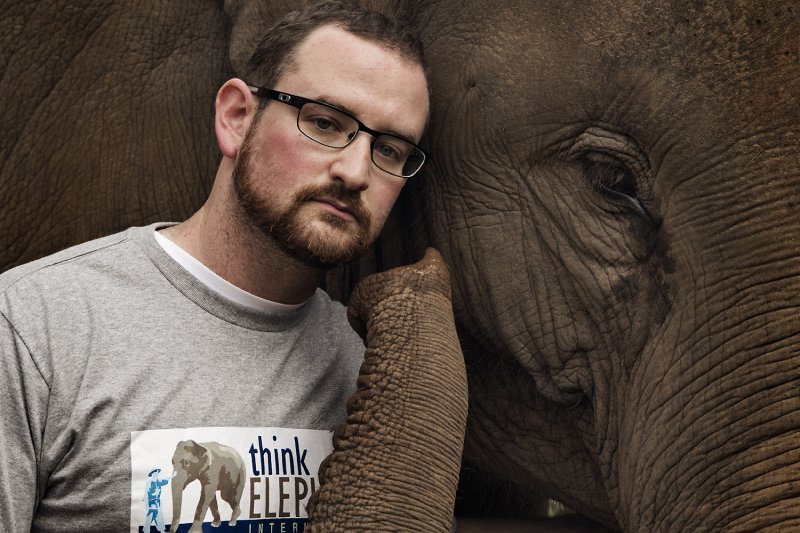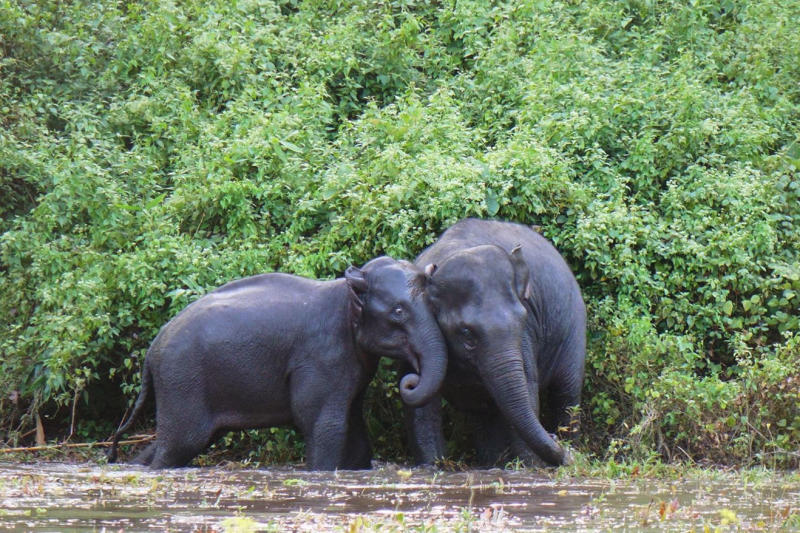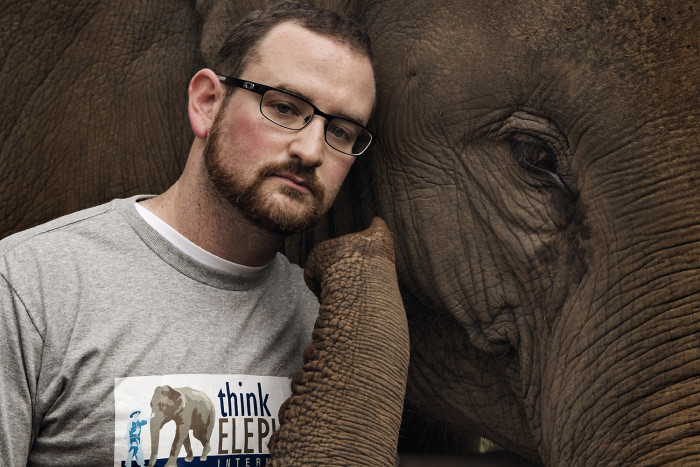Joshua Plotnik worked to prevent deadly encounters between people and elephants. Then the funding froze.
PUBLISHED : 4 Nov 2025 at 11:36
Small
Medium
Large

Joshua Plotnik with an elephant in Chiang Saen district of Thailand’s Chiang Rai province on July 26, 2013. (Photo: New York Times)
Joshua Plotnik: For about 20 years, I have been studying Asian elephant cognition. The biggest issue for the conservation of Asian elephants is human-elephant conflict. Humans and elephants are fighting to share limited resources, and you’re starting to see conflict that is resulting in the loss of human and elephant life.
For the past seven years, what we have done is systematically identify the individual elephants in the Salakpra Wildlife Sanctuary in Kanchanaburi province, Thailand. We’ve identified more than 300 of them and created personality profiles. The idea is: If you can identify an elephant that is raiding a farmer’s crop field, can you direct your mitigation toward that particular elephant’s personality?
We have developed this device called a targeted personality device. It can play a strobe light or display different colours. We can play sounds of predators or novel sounds, depending on whether the elephant is more afraid of predators or novel stimuli. It can spray the odour of potential predators. You can program this device based on all the data you have collected on the personalities of the elephants that have come into the crop field. We are just starting to test that.

Two wild elephants are seen in Nong Pak Kum swamp in Thong Pha Phum Plantation in Kanchanaburi’s Thong Pha Phum district. (Photo: Piyarat Jongcharoen)
The majority of funding for this project has come from the US Fish and Wildlife Service. They have funded us continuously until the president’s executive order freezing foreign aid in January. US Fish and Wildlife sent a stop-work order. And there has been no word whatsoever since.
It has been pretty devastating. We have not been able to expand at the exact critical moment when we need to. We are going to have to go month by month until we can figure out how to support this project long term. We are not willing to shut it down.
We get asked all the time: Why should the American taxpayer contribute money to the conservation of wildlife abroad? The biodiversity of the planet is everyone’s responsibility because we are all interconnected. And when you lose an animal like the elephant, you lose an incredible seed disperser who enables the biodiversity of plants, which leads to increased food resources for other wildlife, which leads to increased resources for humans. But you also lose the ability to teach your children about these animals.
What I think people do not recognise is how incredibly influential the American taxpayer dollar is to conservation. I have been proud to be an American for this reason: We have, for so long, been a steward for conservation. And now, practically overnight, that has been shut off. It is really almost soul-crushing.

Joshua Plotnik at home in New York on July 25, 2025. (Photo: New York Times)
Joshua Plotnik is the director of the Comparative Cognition for Conservation Lab at Hunter College, City University of New York.
This article originally appeared in The New York Times.

